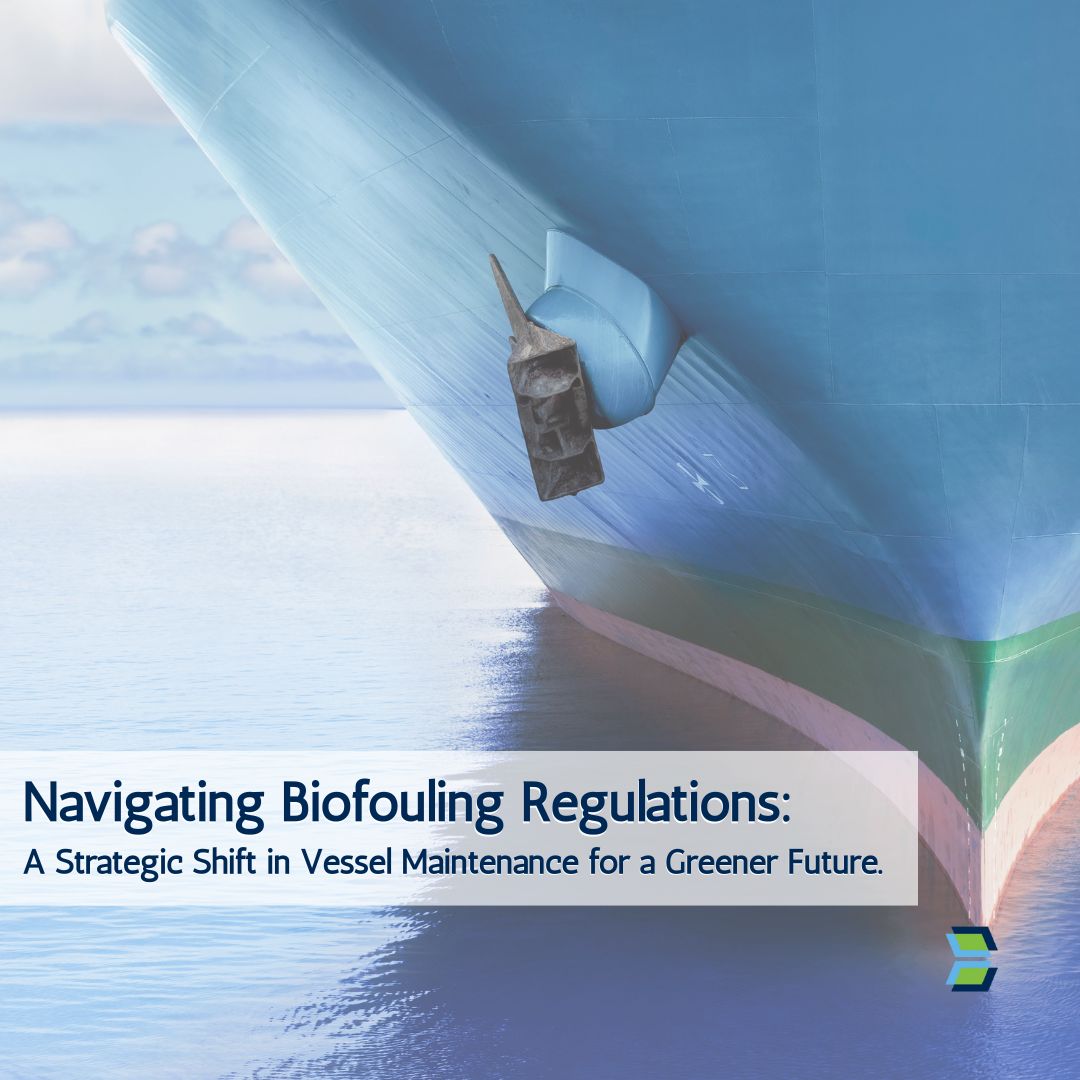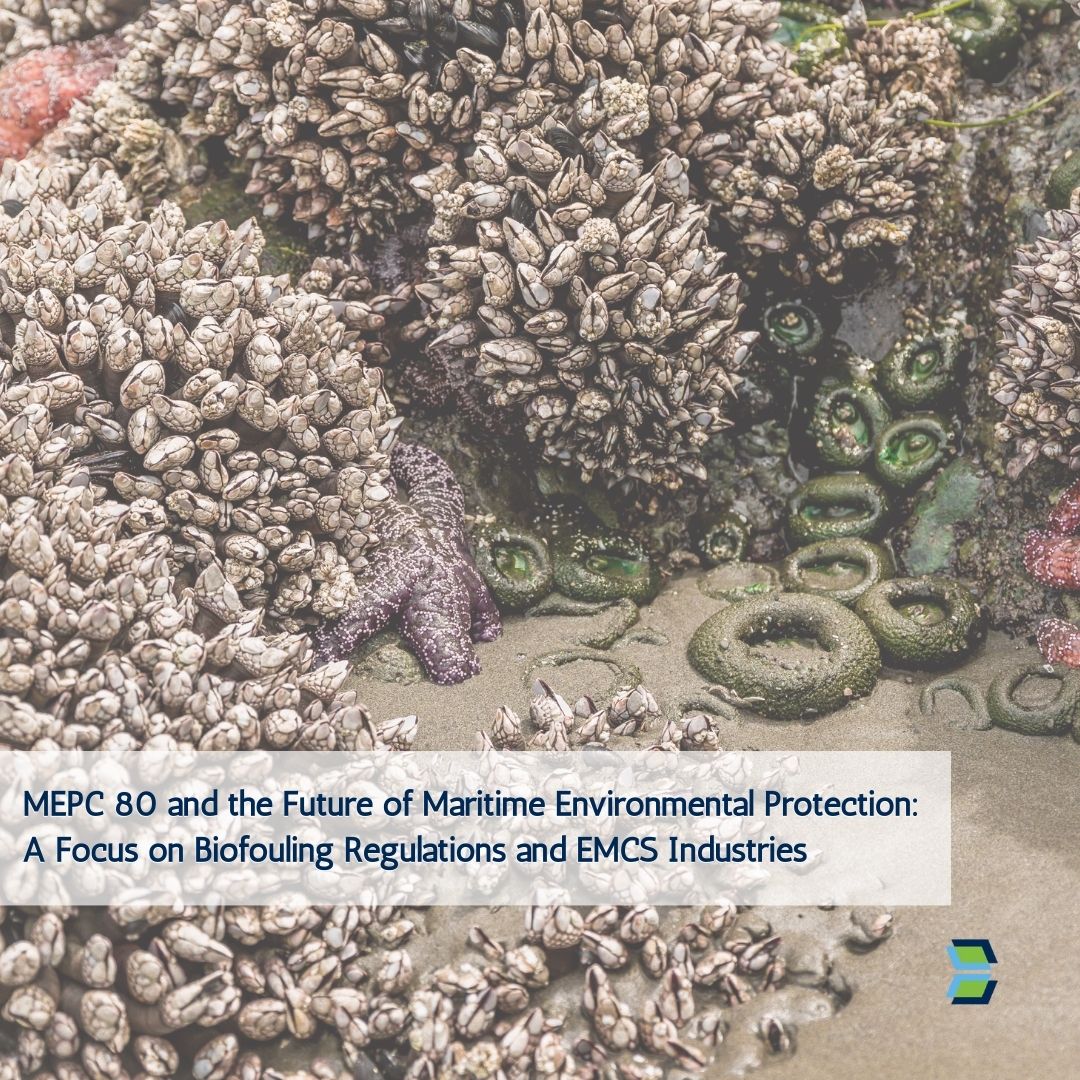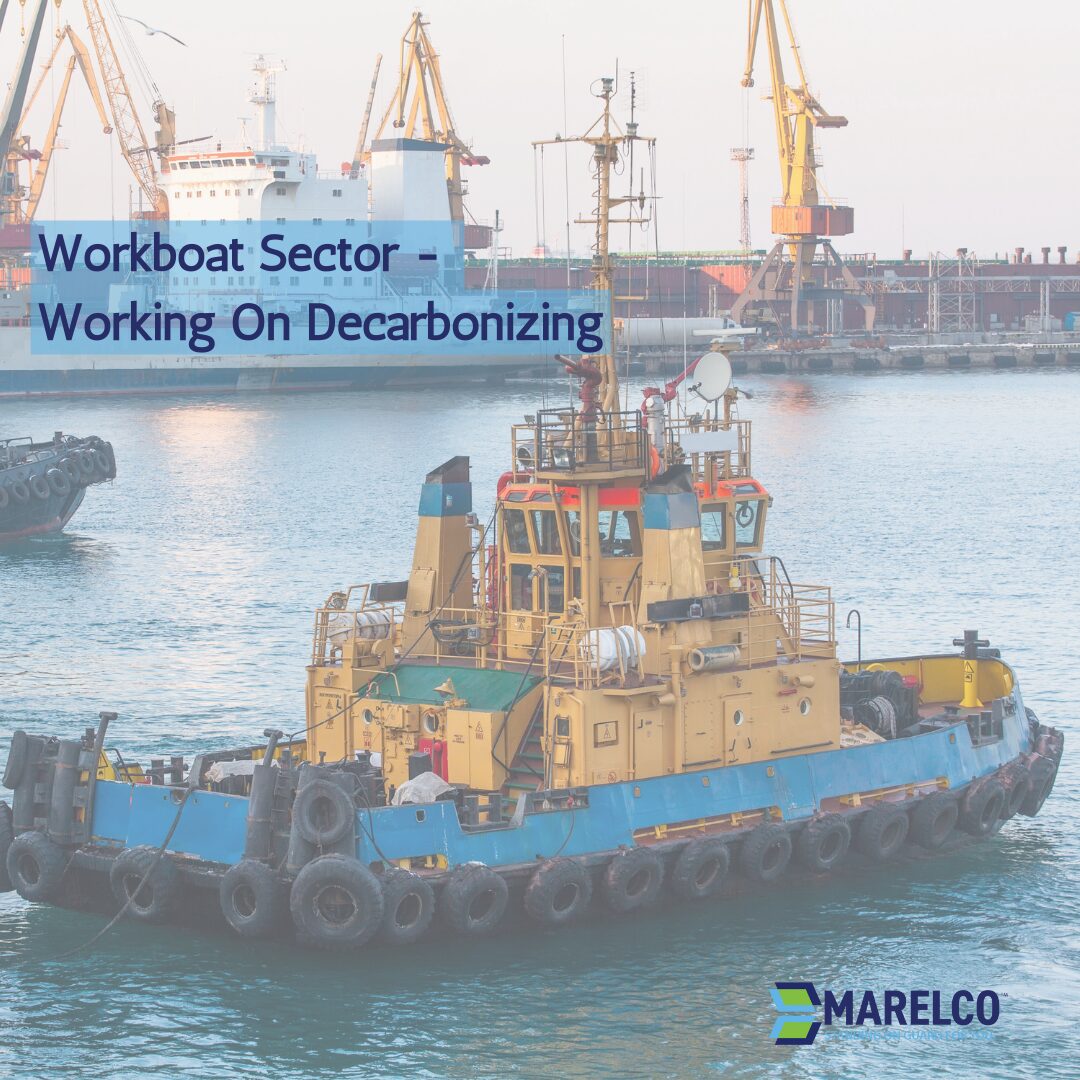As 2024 dawns, the maritime industry is positioned at a critical juncture, balancing growth with…

Navigating Biofouling Regulations
Navigating Biofouling Regulations: A Strategic Shift in Vessel Maintenance for a Greener Future
In the ever-evolving landscape of the maritime industry, we, as business leaders in the industry, are entrusted with a dual responsibility: to steer our organizations toward growth and to ensure that our operations align with sustainability goals. One such transformative shift happening swiftly for vessel owners and operators in the industry is the International Maritime Organization’s (IMO) regulatory approach around biofouling. Serious contemplation of the implications of this regulation in vessel management will be required. It becomes abundantly clear that vessel maintenance strategies must adapt to this new standard to meet the requirements. At the same time, while working towards a more sustainable shipping industry.
Biofouling’s Weighty Impact
Biofouling, the accumulation of marine organisms on vessel surfaces, has long been a factor in operational efficiency. But beyond hindering vessel performance, it also casts a shadow on environmental stewardship. The IMO’s regulations on biofouling address these challenges head-on. Understanding how these regulations resonate within your vessel maintenance strategy becomes paramount as we tackle a decarbonized industry and reduce the transfer of invasive aquatic species.
A Question to Ponder
During this regulatory transition, we invite you to reflect on two critical questions: 1) How will the IMO’s legislative approach around biofouling affect your vessel maintenance strategy to meet those requirements? And 2), Who can assist in providing guidance and independent strategies to begin addressing the issue? These questions are not merely procedural considerations; they are positive pivot points towards responsible and sustainable maritime practices.
Solutions
The IMO’s biofouling regulations highlight a long-standing solution that has been missed as a first step, and the least expensive step towards your sustainability goals: Marine Growth Protection Systems (MGPS) systems are one easy step to reducing emissions and creating energy savings. Both are sustainable goals, and both can be achieved by proper maintenance of your vessels internal seawater systems, niche areas, and the hull.
Integrating innovative solutions (MGPS) tackles the biofouling challenge head-on. The proactive approach of the system itself boosts operational efficiency and aligns seamlessly with marine industries’ commitment to environmental stewardship and the strive for decarbonization of the sector.
As we traverse the seas of regulatory compliance, MGPS systems have already been contributing to sustainable goals, before it became a requirement, for 68 years in fact. MGPS technology can transform vessel maintenance from reactive to proactive through monitoring and protection, reducing downtime, lowering costs, and further minimizing the carbon footprint when implementing an effective strategy is in place. It will add to any initiative you are currently undertaking at a a fraction of the cost.
Charting the Course Forward
We are happy to see the IMO’s biofouling regulations build more awareness in the industry— and that more and more owners and operators are recognizing that vessel maintenance strategies are pivotal in the grand tapestry of the industry’s decarbonization and energy savings narrative.
As business leaders in this field, the journey toward a greener maritime future rest upon us to continue to educate how MGPS can play a part in the decarbonization journey and innovate greener and more sustainable solutions in our product line. We are all on a journey of collaboration, innovation, and an unwavering commitment to align our actions with our environmental aspirations.
Collaborative Innovation
As we learn more and more about biofouling, the collective knowledge and insights shared within the maritime community become invaluable.
This Fall, EMCS Industries is attending two conferences, the Canadian Ferry Association Conference and Interferry47. At Interferry47 Trevor Tasker, CEO of EMCS Industries and Ashley Coutts, Managing Director and Principal Scientist of Biofouling Solutions Pty Ltd, will be discussing the power of proactive maintenance and biofouling management in elevating sustainability for existing vessels. These forums provide the platform to discuss, dissect, and deliberate upon the strategies that will redefine our industry.
There is no silver bullet out there, make sure you seek independent scientific data that backs up any claims being made. If it’s too good to be true, it probably is.


